From Lek Pervizi
Part Ten
THE ODYSSEY OF INNOCENCE
To my brother Valentin, who for 47 years straight,
endured the ideological storms of communism,
and what’s more, separated from his wife,
a true Odysseus in the middle of the twentieth century.
Memorie.al/ As you enter Skuraj and cross the Urdhazës stream, the mountainous climb begins, across the hill called Lekbibaj. You pass three mills, known as Gjin Pjetri’s mills, which stand one after the other. You also pass the two-story tower of Ndrec Pjetri, Gjin’s younger brother, and then you come across a rocky ridge on which stands a complex of three stone buildings, the historic towers known as the towers of Gjin Pjetër Pervizi of Skuraj, the leader of the Kurbin uprising. These buildings dominate the entire valley formed by the joining of the Mat and Fan rivers (a branch of the Mat), all the way to Milot. It is almost a fortress that guards and protects the land from the expeditions of foreign invading armies that could penetrate that gorge, until they were met by the wall of the Skuraj Mountains, where the aforementioned towers stood.
Continued from the previous issue
Heroism in Prison
One of those condemned to death was Ndue Pal Mirashi, whom Valentin had known during his time at Lek Vuksani’s, when the communist partisans attacked Dukagjin. Every time he passed by the window, he saw those who awaited a terrible fate, leaning against the walls, while Pali stood in the middle, greeting him with a smile, and then continuing to perform some physical exercises. His friends around him watched with wonder and sadness! What use were those exercises, since soon the muscles of his body would end up there, under the gravel of the Kir River?!
One day, Ndue Pali approached the window and, greeting him, said: “Do not forget us.” The relatives of those prisoners had been given permission to meet them. When these meetings took place, the guards would close all the other cell doors with a bolt. Ndue Pali’s parents also came. He appeared before them with certain bravado, smiling, as if nothing was going to happen. Seeing him like that, his family could not open their mouths from emotion and the weeping that seized them. The door to Valentin’s cell was not very far away, and he could see from the door’s peephole and hear everything being said. That scene of the meeting had remained in his memory, so much so that he could never forget it.
Ndou tried to calm his family with kind words, but also strong and passionate ones. He told them:
-“I am now ready to cross the threshold into the other world. God will accept me, because,” he added, “I have always been a good believer.”
And speaking more excitedly, he continued:
-“Don’t despair; we will be resurrected into a better life, much better than this one of yours, on this earth full of suffering. Therefore, my dears, farewell until that world!” Very few people can utter such words in such a state. The relatives, choked by sobs and tears, could not say a word. The prisoners who had heard and witnessed that extraordinary scene could not hold back the tears that flowed spontaneously from their reddened eyes. Meanwhile, Valentin noticed a spy, known to everyone, who also could not stop his tears. A wonder of wonders!
To tell the truth, it must be emphasized that in the face of death, there are few who would know how to behave so stoically and heroically, as Ndue Pal Mirashi did.
After this dramatic meeting, another man approached the bars. Valentin did not move for a moment from the door’s peephole. This way he was able to see the one who was meeting with his family.
He was a young man around 20 years old, handsome and tall. Just by looking at him, Valentin’s heart ached for his swift end. He asked someone nearby about that boy. He told him that the boy was called Caf Meti, had been a police officer, and to his misfortune, had participated in the arrest of a communist. The superior who had ordered him was sentenced to five years, while his subordinate had to pay with his life! Nobody spoke to that former police commissioner, who was also in prison, because he was considered a spy.
The cell of those condemned to death was always full. After being sentenced by the infamous Special Court, they had to wait for a while before the execution, because their families would make pleas for pardon to the President of the Presidium, the Parliament, and other authorities. Therefore, from time to time, they would take five or six of them and shoot them there at the Zalli i Kirit. One early morning, when it was still dark, a dramatic event occurred. At first, the metallic sound of locks and bolts was heard. They were going to take some others.
The prisoners waited to see who was next. The police, after locking all the doors, stopped in front of the death cell, where one of them read only two names: Ndue Pal Mirashi and Caf Meti. The others in their group had been pardoned. The two of them got up from their beds, got dressed and waited standing in the middle of the cell. Ndue Pali and Caf Meti turned to their friends, who had gotten up and were standing with their arms crossed and heads bowed, overcome with emotion that their friends were being taken away right before their eyes, while they themselves would be released. Ndue Pali, understanding their emotional state, spoke to them:
-“Be strong, men. You had the fortune to return to your families, that is the most important thing. It’s true that we are saying goodbye to you from this world to go to the other world, but don’t forget us, so we greet you, wishing that you do not suffer our end. After all, we are all children of death.” As soon as he said these words, he spread his legs, crossed his arms, and stood waiting.
“What are you doing?” one of the police officers, who was an officer, shouted, telling them to get out of the cell. Ndue Pali replied, telling them to come and get them. The officer and a policeman took a few steps towards them. The two heroes lunged at them with great ferocity, with two knives pulled from their spoons, which they had sharpened on the concrete of the dungeon. The fight between them began. From the screams, the other police officers with clubs ran to the scene. The two prisoners, who were powerfully built and very strong, were holding off seven policemen and had wounded two or three with their knives,. But one of the policemen shouted:
-“Let’s push these giants towards the door at the end,” and they did so. In this way, they pushed Cafa into the small courtyard, where the armed guard was, who pointed his automatic rifle at him, and Cafa fell dead, cursing the criminals loudly. Meanwhile, inside, the police managed to subdue Pali, who had lost consciousness from the blows of the clubs. Then they attacked Cafa, hitting him with clubs until he also fainted, and they dragged him. Thus, beaten and unconscious, they threw them into a cart, as if they were bags of rags, and it was not long before the sound of killing weapons was heard. They were shot somewhere nearby.
The day after this event, the Head of the Shkodër Branch arrived, who, like a rabid animal, yelled at the police and guards, screaming as loud as he could so that the prisoners could also hear:
-“Why didn’t you, you imbeciles, kill all of them, right there in the cell? You should have eliminated all of them, without mercy!” According to him, even those who had been pardoned. What kind of human race did these soulless executioners belong to, without Albanian feelings, which tortured and killed the poor, innocent prisoners?!
The name of that executioner was Petër Bullati, who was executed later as a traitor to the party in 1956. He was accused of having been an agent and spy for the Yugoslavs. The only true accusation.
From one prison to another
The heads of the Sigurimi often came inside the prison and felt great satisfaction when they saw the prisoners in the worst possible state.
Then, for the hundredth time, they would tell them not to live with dreams that perhaps one day some counter-revolution might happen, or that there might be some foreign intervention to overthrow the current regime, their system, etc., because first of all:
-“We will wipe out all of you, you can be more than sure of that!” That was their constant refrain, which they repeated until they got bored and left, not feeling satisfied, because the prisoners didn’t care at all about what they were babbling about and none of them listened.
One day, they informed Valentin to get his belongings ready because they would transfer him to the old prison, along with other convicts. So in the Gestapo prison, the cells were filled with people convicted for various reasons. “Seven of us,” Valentin said, “were the last to not have a trial. That day his wife came to meet him, to whom he said that he was being transferred to the other prison. They took them tied two by two through the city, accompanied by strong guards, laden with weapons. Poor Gorizia followed him all the way, just like the families of the other prisoners.
In the old prison, they put him in a room on the first floor, where about fifteen people were staying. Only a few of them were awaiting trial, the others had gone through it and were waiting to appear before the people’s court. There were also some who had refused to sign the trial documents, despite the cruel tortures of all kinds they had endured. The new arrivals stayed only in transit, waiting for their trial to take place and to appear in court. After the sentence, they were locked in the concrete rooms below. Several months passed without any change, and in the same room.
It was still unknown what they would do with Valentin! More than a year had passed since they had been investigating him, and the result was that no one in all of Albania knew him. How could they know him, when he had spent his whole life in Italy, with his studies and duties?
His wife, as always, came to the prison door every day, but in this prison, they could not see each other, neither from afar nor up close, nor through the iron bars, because the door was not facing the grates, but to the side, behind which the prisoners stayed. When there was a good guard, Gori could pass him a written note. There were two good guards, cousins, who behaved more humanely towards the convicts. They belonged to a “reactionary” family, who had been mobilized into the partisan brigades during the transition.
No one knew what family they belonged to. But when someone found out, he advised them to be careful, because even among them they had spies, deliberately placed by the Sigurimi. Among other things, since the entry of newspapers had been banned for a while, these two young men brought the news that interested the prisoners. This seemed strange, but in those years before, there had been such cases as this one, where “affected” young men had found work in the police, army, and elsewhere. The prisoners thought that those two guards would be useful in case of an emergency, like an escape or an uprising against the regime.
These were foolish thoughts, but in a prison state, what doesn’t cross your mind. The secret service of the Sigurimi was organized in such a way that not even a fly could fly without its knowledge, much less have cases of organization against the government, by known opponents of communism, who did not exist at all, but who could be hypnotized. The main opponents had been completely eliminated: they had fled abroad, or they were in the mountains, others had been shot, and the majority was in prison.
The communists, from now on, would be more careful, lest someone from their ranks emerge as a dissident. The organizational system of the State Security and that of the Communist Party were in a state of constant vigilance, with an army of spies whom they had recruited from all strata of Albanian society, so much so that they did not say for nothing that; “we know what is boiling in the pot or pan of every Albanian.”
One day at their door, someone spoke:
-“Do you think there will be a place for me here?”
-“Of course,” Valentin, who was the veteran of the room, interrupted, “even if there isn’t, we won’t leave you outside.”
They greeted the new arrival: a handsome boy around 22 years old, with whom Valentin turned out to be a cousin. He was Ndue Fusha, the son of the former Major Gjon Fusha, from Bulgër. Although they had not known each other before, he knew they had a blood connection on his mother’s side, who was the daughter of Gjon Markagjoni. He took him next to him, pushing the others a little. His father, Gjon Fusha, a former Major of King Zog’s Kingdom, was killed by his neighbors during the time of the Germans.
When the partisans came, they joined them and became communists. The boy came from the Sigurimi dungeons, where he had suffered inhuman tortures, because they were looking for his connections with Mark Gjomarku, whose nephew he was. Mark at that time, had fled to the mountains of Mirdita, and was considered a potential and dangerous enemy, who sought to organize the forces of the mountain in his region of Mirdita. With his arrival there, it was thought that the investigation work had been completed, but it was not so. The next day they took him again, straight to the torture dungeon, even though he had a fever and his temperature was over 39 degrees.
They handcuffed him and took him before the interrogator at 9 in the evening and brought him back a mess at 3 in the morning. They had even tortured him with electricity, and to a wonder of wonders, his temperature had returned to normal, 36 and half degrees, as if to spite the executioners. This way he saw himself healed, despite having a broken body. What didn’t happen in those hellish circumstances? Even the fever ran away from the fear of torture…!
The Old Man of Mirdita
While they were there, the prisoners told each other all sorts of stories. This is how Ndou recounted to Valentin and the friends around him the true story of an old man from Mirdita, who was found to be included in a village meeting, where various authorities of the country, the party, and the administration were to speak.
A great party activist, who was born in a nearby village, had taken the floor. After more than an hour of speeches, those present were invited to make remarks and ask for explanations, to direct questions, and proposals, etc.
As usual, no one dared to get up and a complete silence reigned for a while. In the communist system, to take the floor, you had to be very careful, because every expression had to be weighed well, because for half a word, even if said unintentionally, the devil would take you. Despite the attempts of the comrades on the podium, no one was getting up to spoken. Then the orator himself addressed a 70-year-old man, named Pal Doda, who was respected by everyone for his age and because he was very clever and devilish. Pali did not want to get up, but the party secretary insisted:
-“Come on, Pal, get up and tell us something!” The old man got up, scratched his head a little and shook the pipe over the palm of his hand, and said that he was not prepared for this work, and therefore had nothing to say.
-“But I know you well,” the orator had said, “and I know that you don’t need preparation, because nature has made you an orator, so don’t give us empty pretexts. Speak freely, whatever comes to your mind, don’t be afraid of anything.” The old man replied:
-“But you know, comrade secretary, that some word or phrase that is not so pleasant might escape me.” All those present laughed, because they knew Pali well, what a devilish old man he was.
-“Speak, speak, Pal, and say what you want,” the secretary replied, a little as if he regretted inciting that old man to speak.
Pali, after rubbing his white and long mustache, began to speak:
-“To our misfortune, we Albanians, and specifically our ancestors, have been forced to submit to the yoke, suffering, violence, and injustices of all kinds from the Turks for five centuries in a row. Their oppression was unbearable. From time to time, an uprising would begin, which was suppressed with great ferocity. Five hundred years is a bit too much. If we had not suffered that dark period, we Albanians would not have remained the most backward people in Europe.
The people did not endure it and cursed that barbaric and merciless invader more and more every day, begging God to save and free them from that terrible misfortune, and out of despair they said, it would be better for the devil himself to govern us than Turkey. Finally, the dreamed-of day came, and Albania’s independence was declared on November 28, 1912. But the great powers, which we call the seven kingdoms, thinking that we were not able to govern ourselves, sent us a German prince, Prince Wied, whom the people did not tolerate, and so again they said, it would be better for them to have brought the devil than this foreign prince!
Not long after, other invaders came, Montenegrins, Serbs, Italians, French, Greeks, and for all of them, the people expressed that; it would be better for the cursed devil to come than them.
Certainly, we Albanians have some expressions that cannot be translated into any other language, and this calling of the devil, to escape from another, more bitter evil, is nothing more than a way of expressing with subtle irony, to show dissatisfaction with a regime and system, whether foreign or domestic, that tramples on the rights and needs of a people.”
Pali continued to speak in the great silence that had engulfed all those present, who wanted to know where that devilish old man was going with his so well-embroidered words. The party secretary had begun to get nervous. What did he need to give him the floor for?!
-“But here we are, in the end, a brave man came to us, Ahmet Zogu, who began to govern as prime minister, and then after a small tremor, supported by the army and some capable officers, he was declared by the parliament as “President of the Albanian Republic.” Very nice! But his appetite grew and he declared himself King, with the title; Zog I, King of the Albanians.
But the people began to get bored, even though it was an Albanian who was governing them, but he was governing them badly, not as they had expected. Because Zogu began to surround himself with ignorant and servile people, rascals and even traitors. This could not be endured and the old saying began to circulate among the people: It’s better for the devil to rule us than this rascal! Let him break his neck! And here came Italy, with bread and pasta, on April 7, 1939.
The king, instead of putting on his sandals and raising the call to arms for the popular war in the mountains, took off running with his pants down and fled to Greece, where they say a faithful old friend of his protected and escorted him, because otherwise the Italians would have captured him alive.
As for the Italians, no matter how they behaved as civilized and developed people, they were still invaders and the people could not tolerate them. It’s better for the devil to come than this bow-legged invader. And here the invader lost his case, the Duce broke his neck, and the Italians returned to their country, after leaving many heads here. The penalty had to be paid!
When it didn’t take long and the Germans came, before whom the world trembled. The Albanians saw themselves in a worse and worse situation, one invader after another. Even an Albanian King they had, abandoned them on the darkest day. But the German could not be endured, too wild and too strict. The people could not stand it:
It’s better for the red devil with horns than the Germans!
-And the Germans took our evil and left, the country was freed from the invaders, and the party came and the government we have was established. Now we have nothing to ask for and I have nothing more to add!” After he finished his speech, Pali sat down, filled his pipe with tobacco and lit it, exhaling smoke from his mouth and nose with satisfaction.
-“But then,” the secretary, who had stood up with both hands resting on the table, interrupted.
-“What then?!” Pali replied, “I have nothing else to add!”
-“But why did you end your speech like that?! You don’t have anything else to add?! We drove out the Germans, but what then?!”
“And then, nothing, they left and that’s enough. What else can I add, comrade secretary?!”
-“Well, at least tell us, if the people are satisfied after the sufferings they have endured,” the secretary added.
-“Of course, they are satisfied. What they have always sought and desired, they have found. They have nothing more to ask for!” said Pali.
As soon as he finished these words, applause, cheers, and laughter broke out, which none of those present could contain. The secretary saw himself in a bad situation and could not hide his great disappointment. What did he need to give the floor to that old man from Mirdita, knowing him well, what a devil he was, with a sharp tongue and deep meanings? At first, it had not occurred to anyone where the old man was going.
In the conclusion, like a true artist of satire and irony, he had revealed the entire drama that the people were now experiencing, now that the red devil with horns himself had come to rule over the Albanians to his heart’s content, and the people had a lump in their throat, because there was nothing to say. What other devil to ask for, when the devil himself had sat down cross-legged on their hearths?!
As for Ndue Fusha, this boy from a good family, arrested, tortured, and imprisoned as a nephew of the Gjomarkajs, after some time became seriously ill and contracted tuberculosis. They removed him from Valentin’s room and admitted him to the hospital, where the poor man died in the prime of his life. When the prisoners of his room found out, they were saddened, and Valentin even more so, who was also his cousin and received the condolences of the prisoners. His story remained as a final memory he had left for the company.
Valentin had written this story of Ndou’s in his prison memoir notes, so we deemed it reasonable to include it in this book, so that the sad fate of this unfortunate young man would also be known. Memorie.al




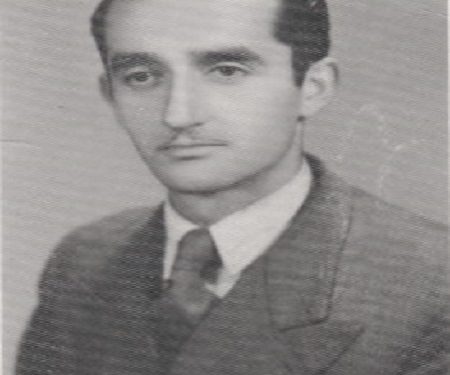
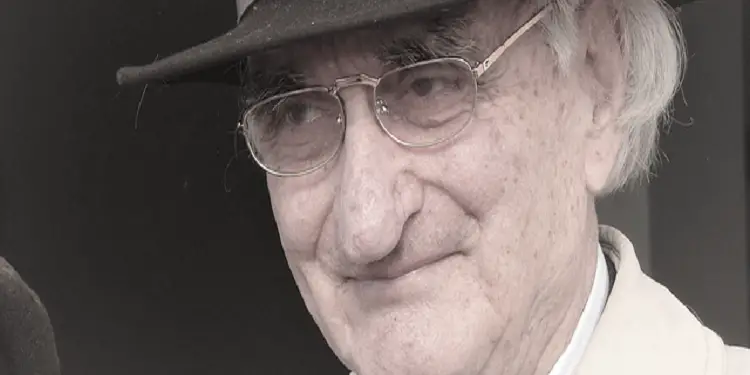
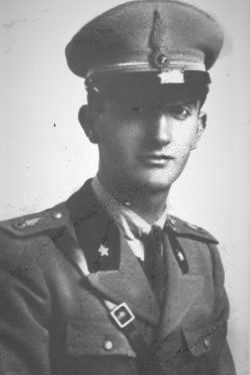
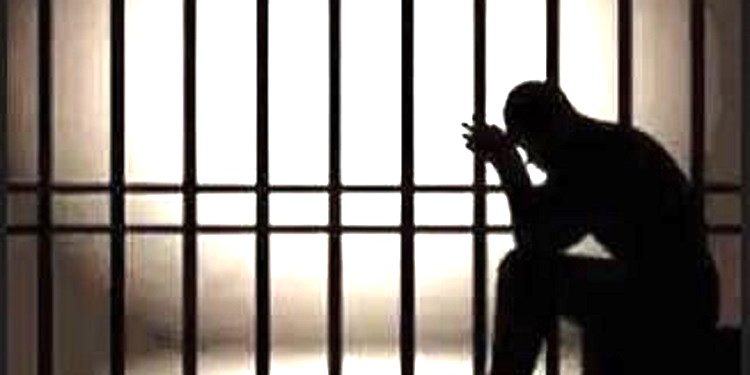
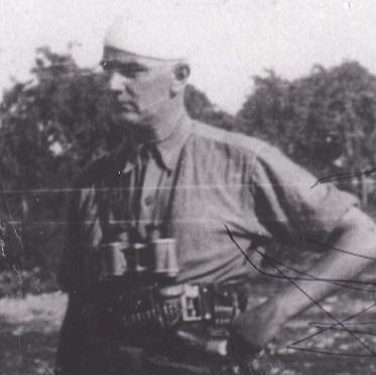
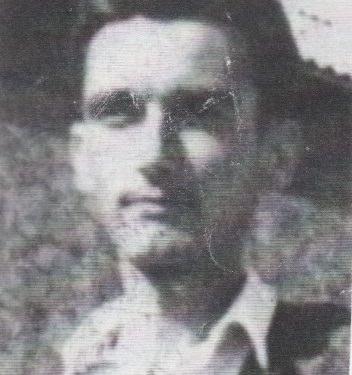
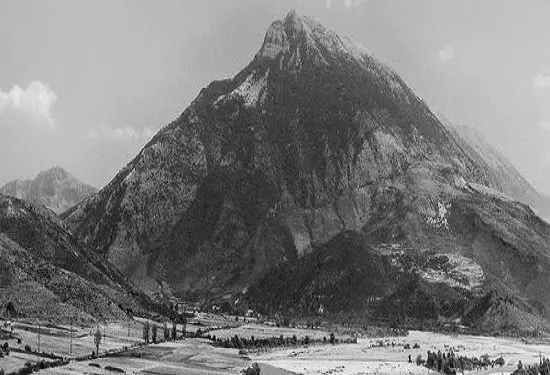



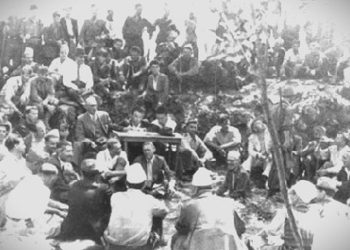
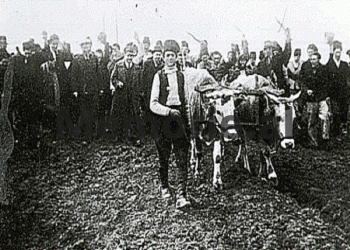
![“They have given her [the permission], but if possible, they should revoke it, as I believe it shouldn’t have been granted. I don’t know what she’s up to now…” / Enver Hoxha’s letter uncovered regarding a martyr’s mother seeking to visit Turkey.](https://memorie.al/wp-content/uploads/2026/01/Dok-1-350x250.jpg)
